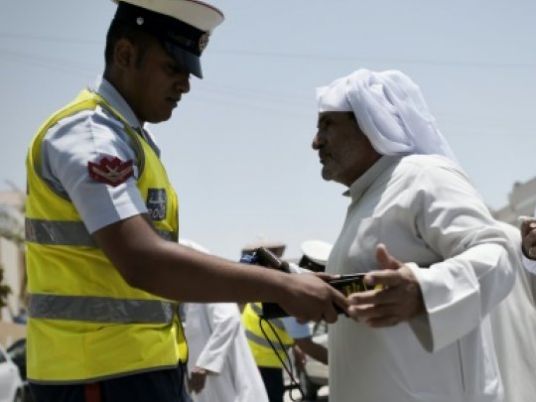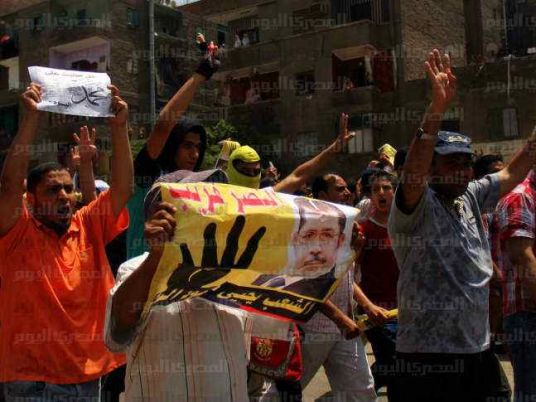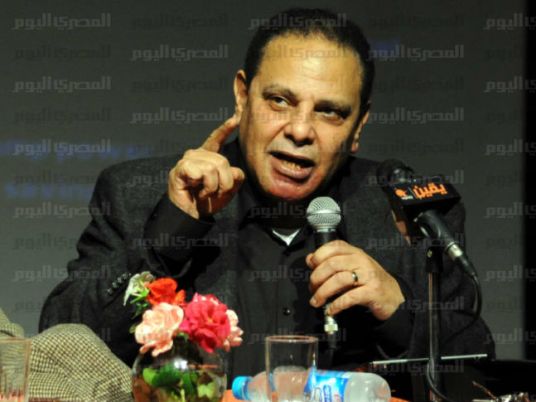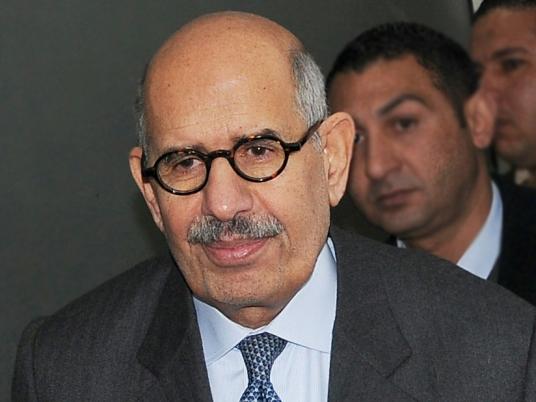On the same day the Military Court of Misdemeanors rejected activist blogger Alaa Abd El Fattah’s appeal to be released, the No Military Trials for Civilians (NMTC) movement escalated its campaign against military trials, calling for a national boycott of the military judiciary.
Abd El Fattah, along with Bahaa Saber, another activist arrested with him, refused to answer questions from military prosecutors during their interrogation as an act of protest against trying civilians before military tribunals.
The summoning of Saber and Abd El Fattah and the eventual detention of the latter triggered an escalation of the campaign led by the NMTC movement, which started nine months ago.
“We call on all civilians to refuse – whether for questioning or testimony – to appear before the military prosecutor, to boycott these unjust proceedings,” said the statement, which was signed by the NMTC movement, the Egyptian Social Democratic Party, the Democratic Workers Party, and a collection of other pro-revolutionary groups and coalitions.
“We will, with our own hands, end the military trial of civilians,” said the statement.
The military prosecution summoned and detained Abd El Fattah for 15 days on Sunday pending investigations. He is charged with assaulting military personnel, stealing weapons that belong to the armed forces, and inciting violence against the military during a protest at the state TV building on 9 October.
Twenty eight people died in the ensuing clashes, which most observers said were instigated by the military. Twelve of those were killed when they were run over by military vehicles, according to the fact-finding report of the National Council for Human Rights (NCHR).
Abd El Fattah’s legal defense team requested his release and asked the court to take into consideration the fact that he was summoned while he was outside the country and returned in order to be interrogated. Therefore, he is not at risk of escaping the country, according to Ahmed Ragheb, Abd El Fattah’s lawyer and the director of Hisham Mubarak Law Center.
Ragheb added that Abd El Fattah told the court that his detention is nothing but a way to abuse him, just like in the days of Mubarak. The activist spent 45 days in jail in 2006.
He was transferred from Appeals Prison to Tora Prison upon the request of his lawyers, as he complained of poor conditions in his cell.
Saber, another prominent activist who was summoned alongside Abd El Fattah and charged with inciting violence, was released pending investigations.
Mona Seif, Abd El Fattah’s sister and a leading activist in the NMTC movement, praised her brother’s stance, describing his detention as an opportunity rather than a setback.
“Many activists wanted to do what Alaa did, but we wanted to make sure that whoever does that has to have enough media and political backing in order to start a strong campaign,” said Seif to Al-Masry Al-Youm on the first day of Abd El Fattah’s detention.
“The truth is that this is a political game and not a judicial case. That is why we have to take political actions that prove our rejection of the military as an authority in the first place,” Seif said.
The military has justified its use of military trials for civilians by saying that they are necessary for preserving stability during the transitional period. However, Khaled Ali, a lawyer and the director of Egyptian Center for Economic and Social Rights, rejects that argument.
“The truth is that the military is putting the country in this state of organized chaos. It pushes the country towards bad economic and security conditions,” said Ali.
He added that military trials have failed to eradicate crime or promote security, and have even exasperated these problems.
“Military trials for civilians and the Emergency Law are nothing but weapons in the hands of the ruling authorities to continue suppressing the Egyptian people, eliminate their [sense of] dignity and punish the revolutionaries,” said Ali.
About 15,000 civilians have been tried in military courts since the Supreme Council of the Armed Forces (SCAF) took power in February, according to Ali.
Alaa al-Aswany, a prominent author, columnist, and critic of the military, accused the military police of deliberately cracking down on revolutionaries.
“Looking back at the military police actions since February, one can observe a pattern: The military police act only in two cases, either to clamp down on and arrest revolutionaries during protests or to rescue a figure that belongs to Mubarak’s regime,” said Aswany during the conference.
Aswany added that the abuse is worse now than it was in the days of Mubarak.
“Before the revolution, when a protest happened, the possibilities were either protesters were beaten in the street or arrested by the State Security. But now, when people go into a protest, there’s a possibility they could be fired at or sentenced to jail for five years by a military trial.”
Activists opposing military trials for civilians say they plan to hold marches and protests in the coming weeks.




